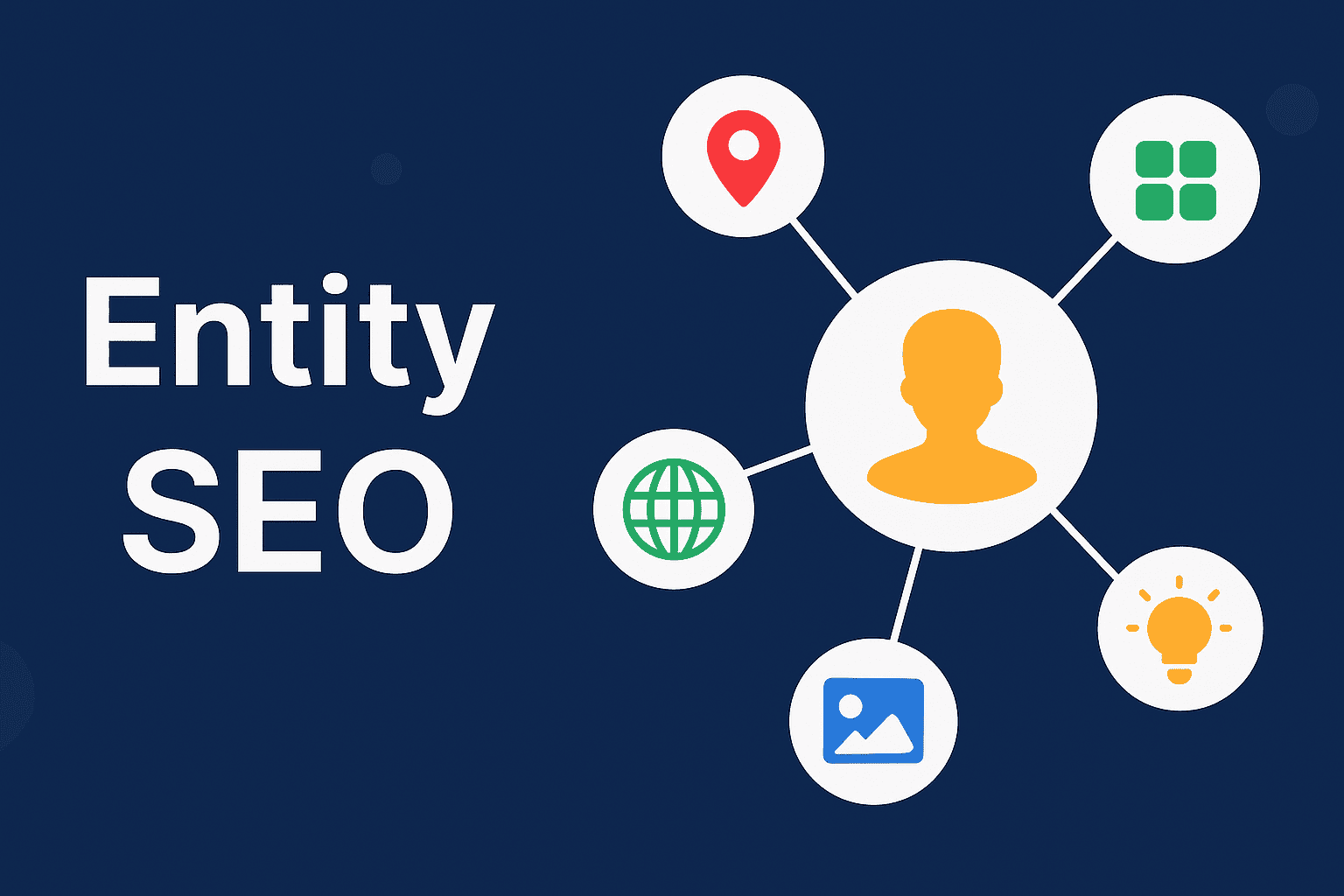Entity SEO: The New Frontier of Search Optimization

What Is Entity SEO?
Entity SEO is the practice of optimizing your content around identifiable “entities” — things that are clearly defined and recognizable by search engines like Google, Bing, and even AI tools like ChatGPT.
An entity could be:
A person (e.g., Steve Jobs)
A company (e.g., Apple.Co)
A place (e.g., America)
A product (e.g., iPhone 16)
A concept (e.g., Artificial Intelligence)
Google uses its Knowledge Graph, schema markup, and semantic understanding to connect your content with these real-world entities — and determine how authoritative and relevant your site is.
🧠 Why Entity SEO Matters in 2025
Search is no longer keyword-focused — it’s contextual. When users search, they expect meaningful results, not just keyword matches.
Here’s why Entity SEO is a game-changer:
1. Better Rankings via Semantic Search
By associating your content with established entities, search engines can:
Understand your niche or expertise
Contextually match your pages to broader topics
Rank your site higher when entity relevance is strong
2. Improved Featured Snippets & AI Answers
Entities help content appear in:
Google’s Featured Snippets
People Also Ask sections
AI-generated results (e.g., SGE or ChatGPT responses)
3. Establishes Topical Authority
Entity optimization helps you become a trusted source in a subject area. This increases the likelihood of being cited in both traditional and AI search results.
🛠 How to Implement Entity SEO
1. Use Structured Data (Schema Markup)
Add schema to define key entities on your site (e.g., Person, Organization, Product).
→ Use schema.org as your reference.
2. Build Context Around Entities
Don't just mention keywords — provide background, relationships, and depth:
“Steve Jobs, the visionary behind Apple, revolutionized the tech industry with products like the iPhone and MacBook…”
This helps machines connect the dots.
3. Use Authoritative References
Link out to trusted sources like Wikipedia, Google Knowledge Panel, or Wikidata. These reinforce the relevance and accuracy of your content.
4. Optimize Internal Linking
Connect related topics using consistent anchor text. This reinforces your site’s knowledge graph and helps Google understand how your content fits together.
5. Get Your Brand Recognized as an Entity
Create or update your Wikidata entry
Claim your Google Knowledge Panel
Use consistent NAP (name, address, phone) for Local SEO
Publish on authoritative sites (e.g., guest posting, media features)